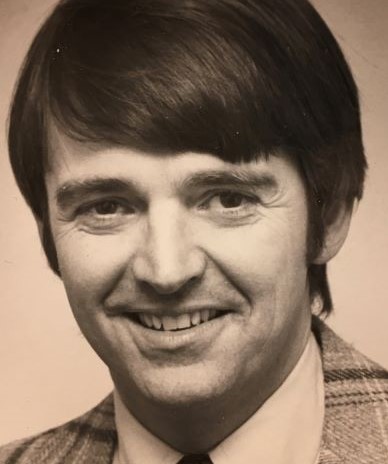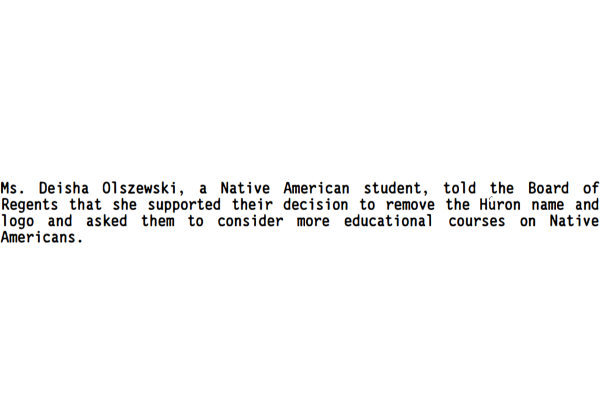Eastern Michigan University Logo Change
Oral History Interviews Conducted by Graduate Students from Eastern Michigan University, Winter 2021
-

Richard Robb, Oral History Interview, 2021
Longtime Ypsilanti resident and EMU Regent Dr. Richard Robb was named chair of the University Logo Committee and tasked with finding a new EMU logo to replace the Huron. Understanding that the logo was offensive to many students, Robb predicted a quick decision and adjournment. Fending off the ire of alums attached to the logo as well as the frustration and occasional apathy of fellow committee members, Robb found himself entrenched in a much larger debate over the identity of the school itself. -

Deisha Myles, Oral History Interview, 2021
A member of the Native American Student Organization at Eastern Michigan University at the time of the struggle to change the EMU mascot and logo, Deisha [Olszewski] Myles attended nearly every meeting related to the change of what many considered to be an insensitive depiction of Native American culture. Myles speaks of her experience as a student on the Logo Selection Committee, witnessing the tense interactions between university administrators and describing the divisions amongst indigenous participants, divisions that often adhered closely to differing generational values.

